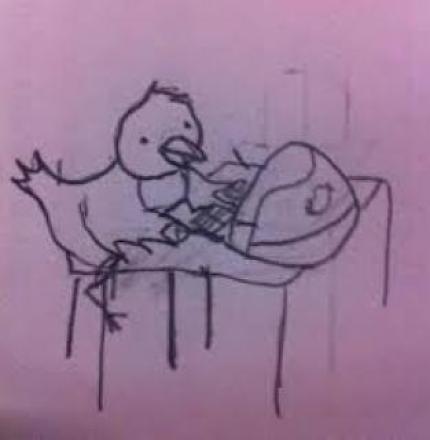
OK, first of all I realise we are not war reporters. I realise that most of us don’t have to wear flak jackets to do our jobs. It’s just that lately it has started to feel that way.
A couple of weeks ago I reviewed a show by a visiting American superstar. I enjoyed the show and filed my review. It was only after going to press that I received an email basically saying that – I’m paraphrasing here – the comic in question owned the copyright on what was said onstage and I was not allowed to quote any lines.
Now there will immediately be a lot of stand-ups reading this who hate their jokes being retold in write-ups and will be delighted by this news. In fact when I mentioned it to a fellow scribe he responded with: “The beginning of the end for reviews ???”. As it happens, critics are allowed to quote a limited amount of what is said onstage, so criticism’s obituary is a little premature.
As coincidence would have it though it has been pretty hard to review a couple of gigs since then even without using material said onstage. After a pivotal routine in James Acaster’s latest show he asked everyone present not to mention who the routine was about. I’ve seen one critic reference it directly, but most have respected the embargo. I alluded to the person in question named onstage with such an obscure reference nobody noticed it anyway.
And then a few days later I went to see another big show. My antennae were already up at this gig because a few weeks ago the performer had taken to Facebook to discuss a recent review of his tour. Not because he was peeved about a bad review. It was a positive one which which maybe read a little too much like a list of what was said in the show.
So I was already primed for a writing challenge before the comic closed the gig by asking everyone not to give away spoilers. Writing about shows you enjoy should be easy, but before I had even lifted my laptop lid I was troubled about what I should write. Don’t quote gags. Don’t say what is talked about. I guess I just resorted to as many nice adjectives as possible to fill the space without saying too much about what exactly the adjectives referred to.
Sometimes I understand this embargo. Derren Brown does it with his shows. But there is a big element of surprise there. Revealing some of the things discussed in a comedy show really won't diminish a fan's enjoyment if the gags are good enough. If might even help to shift some tickets. If I write "X has a stand-out routine about his dog" you might get some useful retweets with the box office link in the canine community.
But nobody complains if you talk about the plot in Macbeth, or even a newer play unless it's The Mousetrap. Bands aren't bothered if you say what songs they did.
As I said it’s not exactly reporting from the front line. But sometimes I have felt as if I am on a secret mission. Last night I went to see Lauren Pattison at the Soho Theatre. I was happily taking notes in the semi-darkness when she mentioned that she had banned reviewers from her show. This was news to me, but I quickly slid my notepad back in my pocket and went undercover.
Maybe I should have been grateful I got into the gig at all. When I was doing some research/procrastinating this morning I came across a comment on social media from a stand-up who said that they did not allow critics into their shows. Not only did they not issue press tickets but just in case critics actually had the nerve to pay for a ticket there was a list of names to look out for on the door. With photos of the people who should be turned away. Ok, maybe I don't need to wear a flak jacket. But I might have to buy a false beard.



